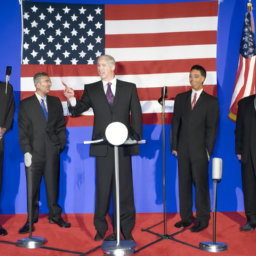The Republican Party, often called the GOP (short for “Grand Old Party”) is one of two major political parties in the United States. Founded in 1854 as a coalition opposing the expansion of slavery, the party has gone through various shifts in ideology and priorities over the years. In the twentieth century, the GOP was generally known for its opposition to government expansion to solve social problems.
This stance can be traced back to the party's roots in classical liberalism, which emphasizes individual liberty, free markets, and limited government intervention in economic and social affairs. Many Republicans believed that government intervention in the economy would only create inefficiencies and distortions that would ultimately harm the very people it was meant to help. Instead, they favored policies that would promote economic growth and individual initiative, such as tax cuts, deregulation, and privatization.
This philosophy was put into practice during the Reagan administration, which is often seen as the high point of conservatism in the twentieth century. Reagan's policies, often called Reaganomics, were based on supply-side economics, which held that cutting taxes and reducing regulation would stimulate economic growth and increase government revenue. The Reagan administration also sought to reduce the size and scope of the federal government, cutting back on social welfare programs and shifting more responsibility to the states.
However, not all Republicans in the twentieth century adhered to this philosophy. Some, known as the "Rockefeller Republicans," favored a more moderate approach that emphasized social welfare programs and government intervention in the economy. These Republicans were often at odds with the more conservative wing of the party, which saw government expansion as a threat to individual liberty and economic growth.
Despite these internal disagreements, the Republican Party remained generally opposed to government expansion throughout the twentieth century. This stance was reflected in the party's platform, which called for a smaller government, lower taxes, and less regulation. Republicans also opposed many of the social welfare programs that were created during the New Deal and Great Society eras, arguing that they were inefficient and created dependency.
However, the party's opposition to government expansion was not absolute. Republicans supported government intervention in certain areas, such as national defense and law enforcement. They also supported policies that would promote economic growth and job creation, such as infrastructure projects and free trade agreements.
Overall, the Republican Party's opposition to government expansion in the twentieth century reflected its commitment to individual liberty, free markets, and limited government intervention in economic and social affairs. While there were internal disagreements over the extent of government intervention, the party remained generally skeptical of government solutions to social problems.
